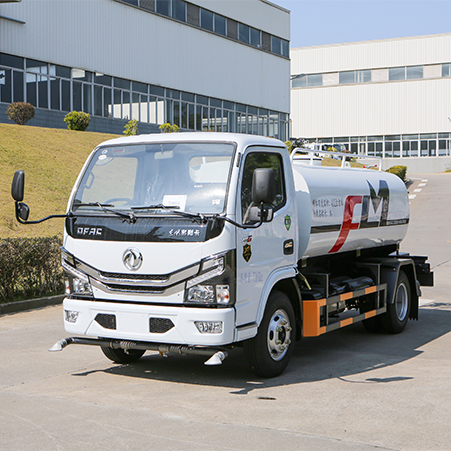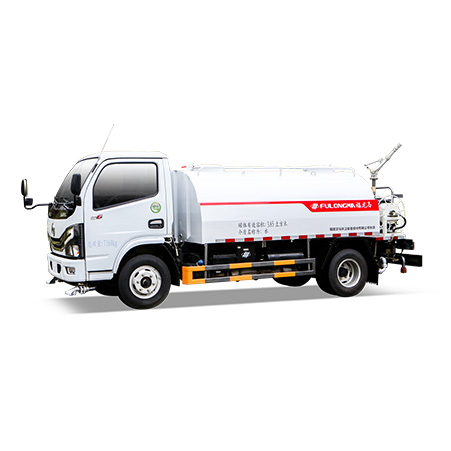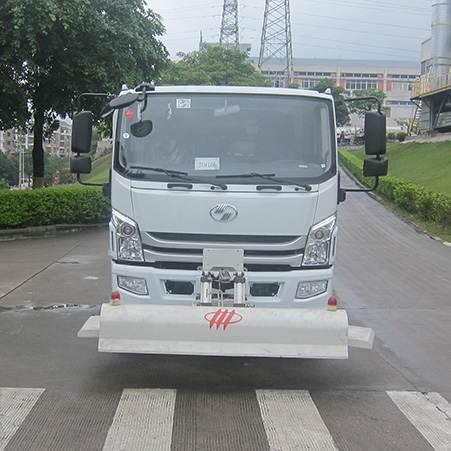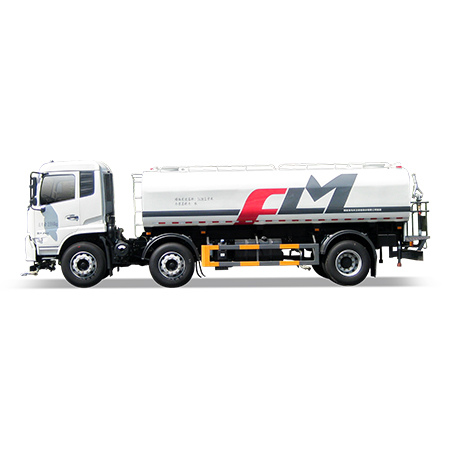Urban landscapes are essential to our cities, providing green spaces, reducing heat, and improving the overall quality of life. However, maintaining these lush, green environments requires significant water resources and efficient irrigation systems. Enter the electric sprinkler truck – an innovative solution that promises to revolutionize urban irrigation with sustainability and efficiency at its core.
Electric sprinkler trucks are a modern twist on traditional irrigation vehicles. Instead of relying on diesel or gasoline, these trucks run on electricity, significantly reducing their carbon footprint. Equipped with advanced battery technology, electric sprinkler trucks are designed to water parks, gardens, and urban green spaces quietly and cleanly. They represent a significant leap forward in the quest for sustainable urban maintenance.

What are Electric Sprinkler Trucks?
Electric sprinkler trucks are specially designed vehicles that use electric power to operate. Here’s a closer look at what makes them tick:
- Battery Capacity and Charging Infrastructure: These trucks have powerful batteries that provide enough energy for a full day’s work. Charging infrastructure is being developed alongside these trucks, with fast-charging stations becoming more common in urban areas.
- Water Tank and Irrigation Mechanisms: Like their traditional counterparts, electric sprinkler trucks have large water tanks and sophisticated irrigation systems. They can be programmed to deliver precise amounts of water, ensuring efficient use without wastage.
- Technology Integration: Many electric sprinkler trucks are integrated with smart technologies. Sensors and GPS can optimize irrigation routes and schedules, further enhancing efficiency and reducing water usage.
Economic and Operational Advantages
Transitioning to electric sprinkler trucks offers several economic and operational benefits:
- Cost Savings: Although the initial investment in electric sprinkler trucks can be high, the long-term savings are substantial. Electric vehicles have lower operating costs compared to diesel or gasoline trucks due to cheaper energy prices and fewer maintenance requirements.
- Maintenance Benefits: Electric vehicles have fewer moving parts, which translates to lower maintenance costs and less downtime. This means more consistent and reliable irrigation for urban green spaces.
- Government Incentives: Many governments offer incentives and subsidies for adopting electric vehicles. Cities can take advantage of these programs to offset the initial purchase costs.
- Operational Efficiency: With quieter engines, electric sprinkler trucks can operate in noise-sensitive areas without disturbing residents, allowing for more flexible irrigation schedules.
Challenges and Considerations
Despite their numerous benefits, electric sprinkler trucks face some challenges:
- Initial Investment and Infrastructure: The upfront cost of electric trucks and the necessary charging infrastructure can be a barrier. However, as technology advances and adoption increases, these costs are expected to decrease.
- Battery Life and Charging Times: Current battery technology limits the range and operational time of electric sprinkler trucks. Cities must plan for efficient charging schedules and routes to ensure continuous operation.
- Range Limitations: The range of electric vehicles can be a concern, especially in larger cities. Strategic placement of charging stations and optimized routing can help mitigate this issue.
- Training Requirements: Transitioning to electric vehicles requires training for operators and maintenance personnel. Cities must invest in education to ensure smooth operations.
Future Prospects
- Battery Innovations: Ongoing advancements in battery technology promise longer ranges and shorter charging times, making electric sprinkler trucks even more viable for urban irrigation.
- Smart City Integration: The integration of electric sprinkler trucks with smart city infrastructure can lead to highly efficient irrigation systems. Internet of Things (IoT) devices can monitor soil moisture and weather conditions, ensuring optimal watering schedules.
- Autonomous Operations: The development of autonomous electric sprinkler trucks could further enhance efficiency, reducing the need for human intervention and allowing for 24/7 operations.
- Expanded Charging Networks: As electric vehicle adoption grows, the expansion of charging networks will make it easier to keep electric sprinkler trucks operational throughout the day.
Conclusion
Electric sprinkler trucks represent a significant step forward in urban irrigation, offering a cleaner, greener solution that aligns with the growing emphasis on sustainability. While there are challenges to overcome, the economic, environmental, and operational benefits make them a compelling choice for cities looking to maintain their green spaces responsibly.
As technology advances, the adoption of electric sprinkler trucks is likely to increase, paving the way for a more sustainable future for urban irrigation. The transition to electric vehicles in this sector not only reflects a commitment to environmental stewardship but also promises to enhance the quality of life in our cities, making them more livable and enjoyable for everyone.








